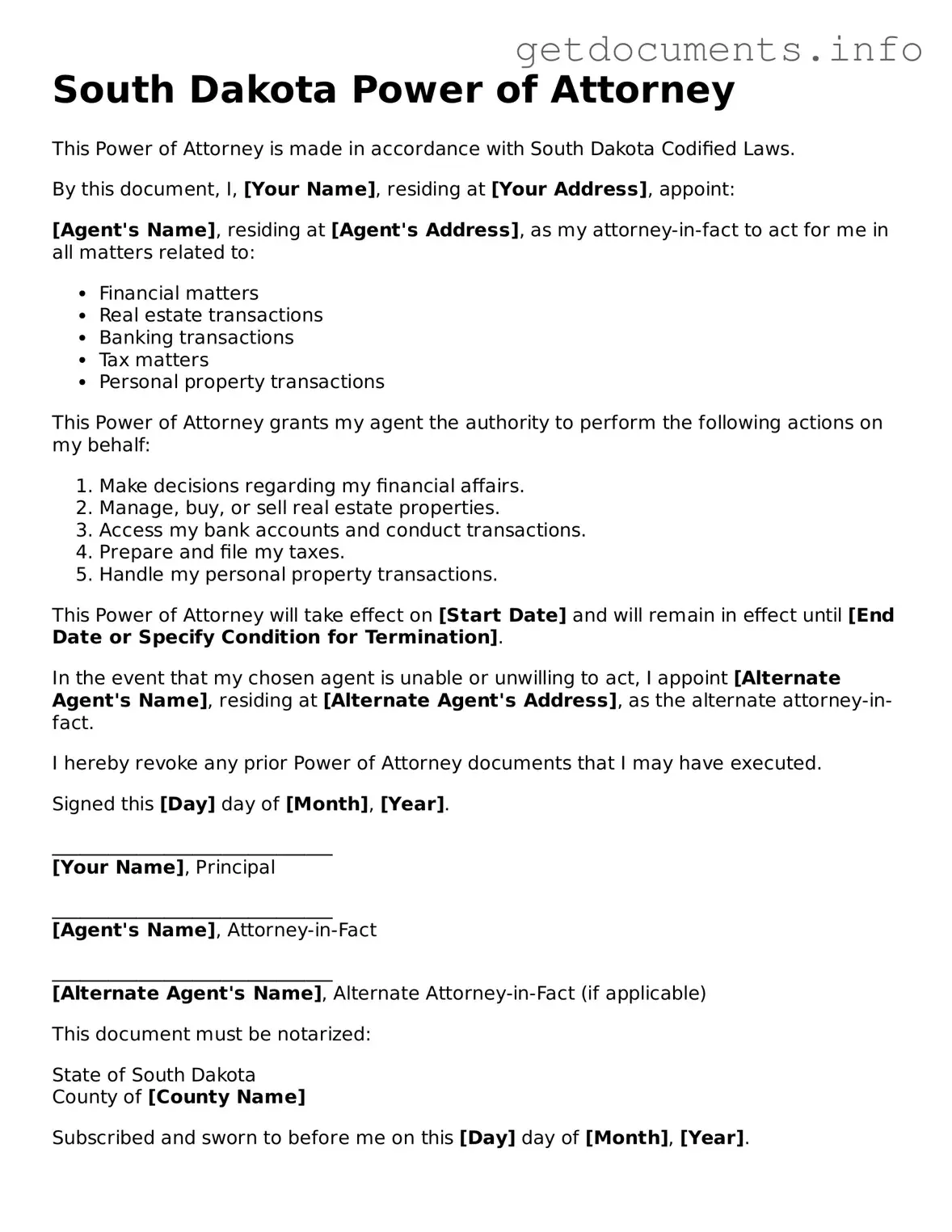Free Power of Attorney Template for South Dakota
A Power of Attorney form in South Dakota allows an individual to designate another person to make decisions on their behalf, particularly in financial or medical matters. This legal document empowers the chosen agent to act according to the principal's wishes, ensuring that their interests are represented even when they are unable to do so themselves. To take the next step in securing your future, consider filling out the form by clicking the button below.
Access Power of Attorney Editor

Free Power of Attorney Template for South Dakota
Access Power of Attorney Editor
Got places to be? Complete the form fast
Fill out Power of Attorney online and avoid printing or scanning.
Access Power of Attorney Editor
or
⇩ PDF File
